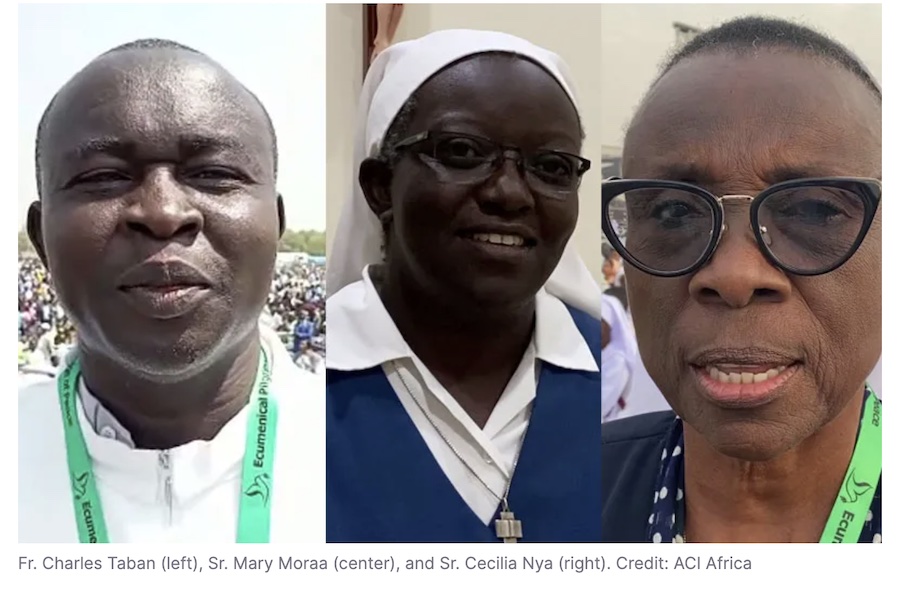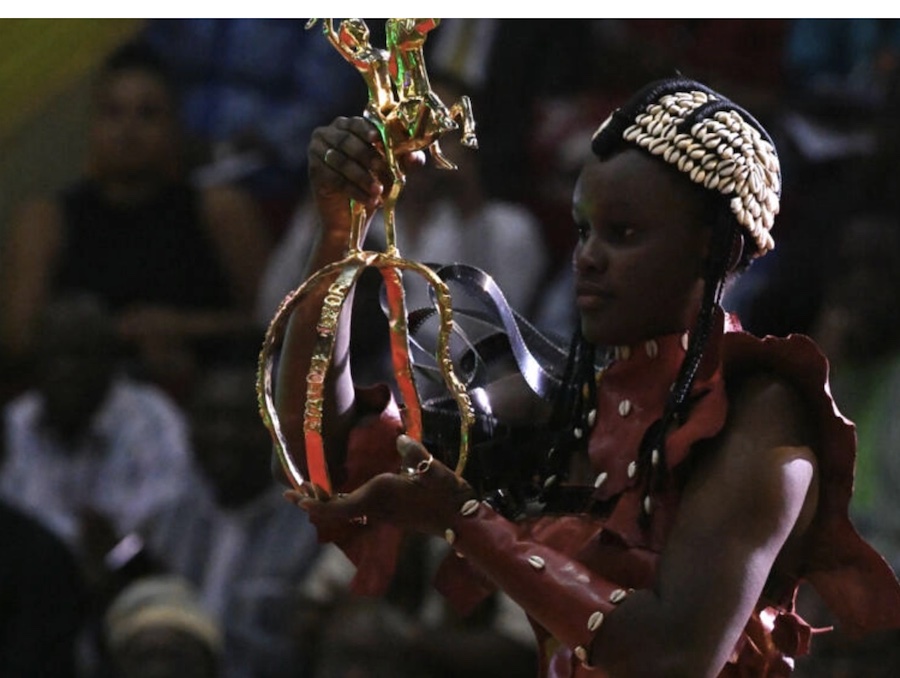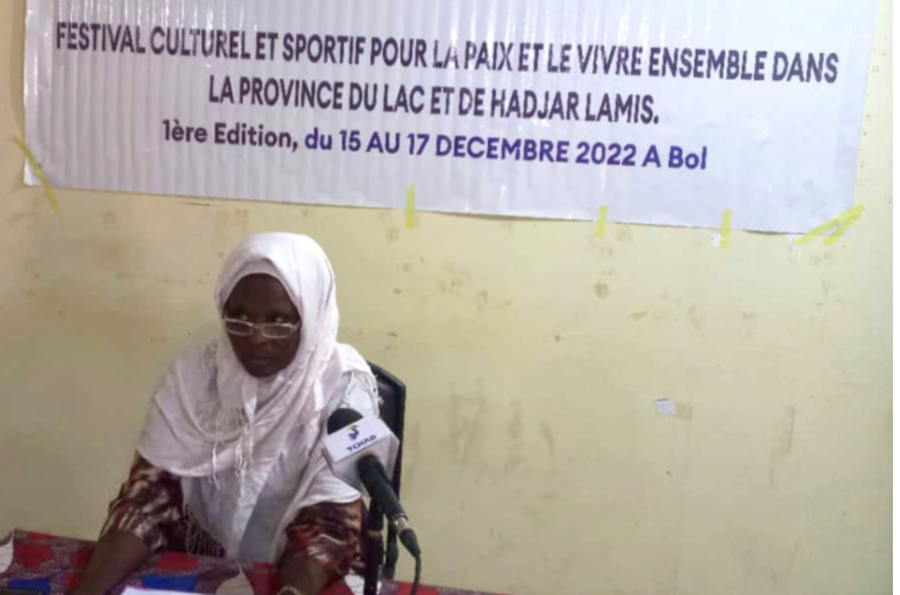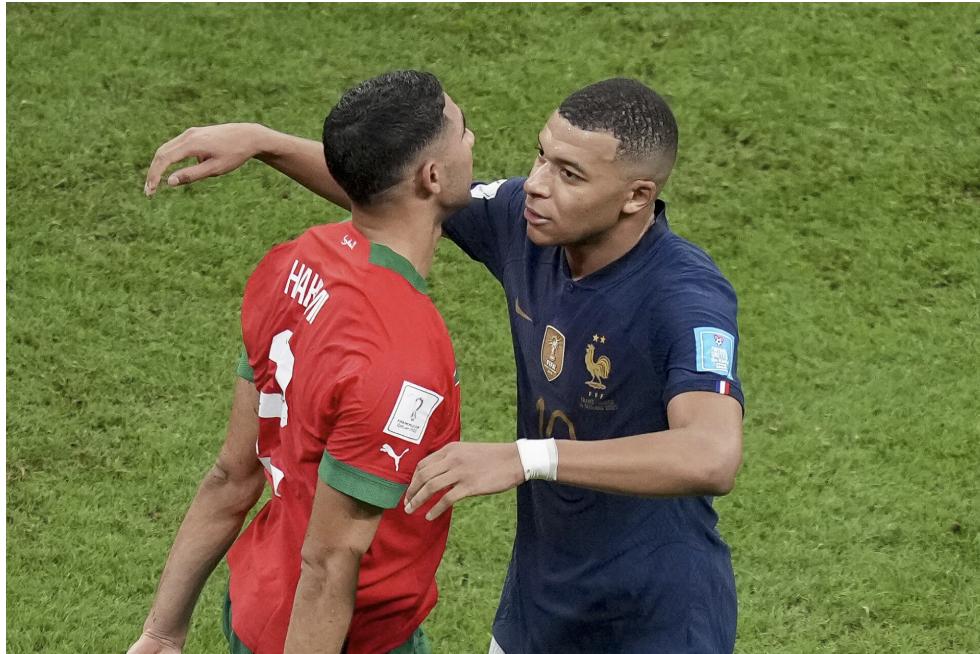. . SUSTAINABLE DEVELOPMENT . .
An article from United Cities and Local Governments of Africa
The 6th edition of the African Forum of Territorial Managers and Training Institutes targeting Local Governments was held over 6 days, from November 28th to December 03rd, 2022 at the Training Center of the Faculty of Medicine and Pharmacy of the Ibn Zohr University in the city of Agadir, Morocco.
The theme chosen for this edition was: “The challenge of training and capacity building of Local Elected Officials and Local Government Staff in Africa in Climate Action”.
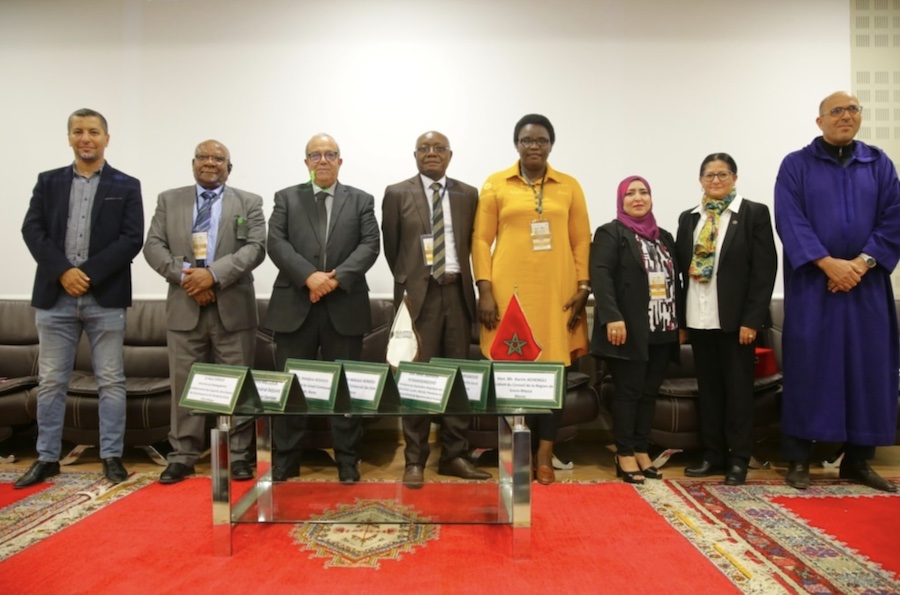
This important annual meeting of Territorial Managers, held just one week after COP27, was organized by United Cities and Local Governments of Africa (UCLG Africa) through its African Local Government Academy (ALGA), in partnership and with the support of the European Commission, the Directorate General of Local Authorities of the Ministry of the Interior of Morocco, the Region of Souss-Massa, the Prefectural Council of Agadir Ida- Outanane, the Provincial Council of Tiznit, the Provincial Council of Taroudant, the Ibn Zohr University and the Training Center of the Faculty of Medicine and Pharmacy of Agadir, the National Agency for the Development of Oasis and Argan Zones (ANDZOA), the National Associations of Local and Regional Governments of Morocco (namely ARM, AMPCPP and AMPCC), the Ecological Transition Agency ADEME of France, the 4C-Maroc Center, the Office of the United Nations Project on Governance, Directorate of Public Institutions and Digital Governance (DIPGD) of the United Nations Department of Economic and Social Affairs (UNPOG/ DPIDG/ UN DESA), as well as the Ministry of Energy Transition, and Sustainable Development, and the Municipal Council of Agadir.
During the six days of proceedings, more than 300 participants attended the Forum from 40 countries, including 33 African countries. These delegations took part in and contributed to the work of:
– An official opening ceremony, under the chairmanship of the Honorable Mr. Karim ACHENGLI, President of the Souss-Massa Region Council and the Honorable Mrs. Jeannette NYIRAMASENGESHO, President of the Rwandan Association of Local Authorities (RALGA) of Rwanda , President of the Ngororero District Council of the Western Province, President of the Association of Local Governments of East Africa, having represented the Honorable Mrs. Fatimetou ABDEL MALICK, President of UCLG Africa, President of the Permanent Gender Committee of UCLG, President of the Region of Nouakchott, Mauritania;
– Four (4) Plenary Sessions on issues related to Climate Action;
– Eight (8) parallel workshops on climate challenges and capacity building challenges;
– Three (3) Master classes having focused on the concepts and approaches of Climate Action, Decentralized Cooperation and e-Learning;
– One (1) Training of Trainers Seminar on Climate Action for the benefit of 26 beneficiaries from different African countries, within the framework of the Partnership Agreement with ADEME;
– Three (3) field visits.
– South-South partnership and Decentralized Cooperation agreements, discussed and signed;
– A closing, recognition, and certification ceremony;
– A tree planting by the African Delegations.
The discussions held during the proceedings focused on the challenges related to climate change for local governments, in particular:
– How can we create an enabling environment for the Localization and Territorialization of Climate Action?
– What has COP27 generated for Local Governments?
– How to enable Local Governments to benefit from Climate Finance?
– What are the challenges in terms of education, training, and capacity building?
– How to promote decentralized multi-actor cooperation that can be at the service of climate action?…
The takeaway from these debates is that we find ourselves in a turbulent context as well as a deep world division generating crises; that only 10% of climate finance benefits to the local and territorial levels; that the challenges in terms of training and capacity building are enormous and that it is time to act to enable Local Elected Officials and their civil servants s to take ownership of Climate Action, and integrate it into their Governance and planning.
The proceedings and contributions led to the following 20 main recommendations:
1) Need to increase public funding in terms of volume and as a share of adaptation and resilience funding (Need to mobilize the 140 to 300 billion US dollars needed annually by 2030).
2) Need to strengthen and make more coherent the architecture of concessional climate finance, which includes the Green Climate Fund, the Global Environment Facility, the Climate Investment Funds, the Adaptation Fund as well as the concessional windows of the multilateral development banks, as well as the Global Infrastructure Fund.
3) Need to become aware of and know how to take advantage of the many opportunities for financing climate action.
4) Need to increase local climate finance for localized climate action, to better understand the role of the local and territorial dimension of climate action in Africa, if we are to thrive as a community of nations, with local governments as a driver of sustainable development.
5) Need to localize and territorialize NDCs, because everything is done in cities; concrete actions must be taken at this level.
6) Need to raise awareness and territorialize political actions related to climate change and involve women and young people in Climate Action.
7) Need to give more space and importance to cities in the context of the localization of the Climate Agenda and put in place mechanisms to facilitate access to international climate finance, because only 10 % of climate finance is found locally.
8) The diversification of energy sources (highlighted by COP27, starting from the importance of the mix of clean energies).
9) Need to take Africa to the next level and provide incentives that leverage innovations already underway in the region that will have greater impact (e.g. acting for the informal sector and encouraging youth participation).
10) Need to prioritize financial innovation (80% of climate finance in Africa comes from public resources) and therefore there is an urgent need to increase private sector finance in climate action.
11) A paradigm shift is needed in Africa’s climate narrative; the continent’s current narrative must shift from projecting responsibility and risk to projecting investment and opportunity.
(article continued in right column)
Question for this article:
Despite the vested interests of companies and governments, Can we make progress toward sustainable development?
(Article continued from the left column)
12) Need to transform Nationally Determined Contributions (NDCs) and Commitments into clear investment plans with a clear return on investment in the different areas prioritized in the NDCs.
13) The urgency of harnessing empirical evidence on key gaps and opportunities to be filled to scale up these successes and create targeted incentives that will need to be applied to enable them to progress.
14) Need to increase support for holistic capacity development assessments at the national, subnational, and local levels.
15) Need to apply a multi-stakeholder approach by involving a wide range of actors and stakeholders, at all levels of governance (national, subnational, and local).
16) Develop long-term capacity building interventions.
17) Need to strengthen international, regional and national knowledge networks, platforms, communities of practice as well as peer-to-peer learning and support.
18) Developed countries should ensure that more climate finance is available for stand-alone capacity building programs at the national, subnational, and local levels and to increase coordination among entity capacity building service providers of developed and developing countries.
19) Need to invest in conflict prevention through a supportive and facilitating environment.
20) Capacity building for the promotion of the Culture of Peace and the art of negotiation.
“We attach importance within UCLG Africa to the efforts of our Academy: ALGA. We will try to follow up on the implementation of all the recommendations that will come out of this important meeting”, declared, through a video intervention, the President of UCLG Africa, the Honorable Mrs. Fatimetou Abdel Malick.
The Forum also served as a framework for the holding of the meetings of three Professional Networks of UCLG Africa, namely:
– The meeting of the Network of Human Resources Directors (Africa Local RHNet);
– The African Network Meeting Permanent Secretaries/Executive Directors of National and Regional Associations of Local Governments;
– The meeting of the African Network of Territorial Directors in charge of Decentralized Cooperation and International Action of Territorial Governments (RAMCD).
Field visits were made to 3 cities in the Souss-Massa Region to inquire about transformational projects and cultural heritage as a vector of peace and development. The Delegations were divided into three groups:
– Group 1 visited the Province of Taroudant and was received by the Honorable President of the Provincial Council of Taroudant. The participants had the opportunity to discover the ancestral Walls of the City of Taroudant, as well as Cooperatives which promote and market local products, such as Argan Oil, Saffron, Honey, Olive Oil, etc.
– Group 2 visited the Province of Tiznit where the Delegations were welcomed by the Governor of the Province and the Honorable the President of the Provincial Council of Tiznit. Participants discovered part of the city’s cultural heritage, transformational projects linked to climate action, cooperatives promoting and marketing local products, as well as shops that market silver jewelry in addition to other reputable products from that Province;
– Group 3 visited the City of Agadir where the delegations were received by the Honorable Vice-President of the Municipal Council. They had the opportunity to visit two transformational projects in connection with Climate Action, namely the Chtouka -Aït Baha water desalination station intended for the drinking water supply of the Greater Agadir area, as well as the wastewater treatment plant.
To materialize their ecological commitment, the African Delegations present at FAMI6_2022 planted thirty (30) Argan trees, provided and offered by the National Agency for the Development of Oasis Zones and the Argan Tree (ANDZOA) in the premises of the Ali Ben Chekroun High School and College in Agadir. The delegations also discovered the creative genius of the students of these two institutions, as well as their mastery of Moroccan, patriotic, and modern music and songs.
The closing ceremony was moderated by Dr. Najat ZARROUK , Director of Development and of the African Local Government Academy (ALGA) of UCLG Africa, member of the Committee of Experts on Public Administration of the United Nations, and President of the International Association of Schools and Institutes of Administration (IASIA), representing Mr. Jean Pierre ELONG MBASSI, Secretary General of UCLG Africa who was during the same week attending another mission in Brazil to promote relations between Africa and this Latin American country.
This ceremony was marked by the presence of:
– The Honorable Madam Jeannette NYIRAMASENGESHO, President of the Rwandese Local Government Association (RALGA), President of the Ngororero District Council of the Western Province, President of the Association of Local Governments of East Africa, who said in her speech: “I would like to thank the Kingdom of Morocco for hosting us throughout this week. The theme of this Forum reflected the firm commitment of Local Authorities to the implementation of the Climate Agenda, but above all our commitment to support the roadmap for COP 28 scheduled to take place in Dubai in 2023”;
– Mr. Morris MBOLELA, Deputy Secretary General of UCLG Africa; The Vice-President of the Council of the Region of Souss-Massa, representing the Honorable Mr. Karim ACHENGLI , President of the Council of the Region of Souss-Massa,
The Honorable Mr. Lahcen AMROUCH, President of the Communal Council of Argana, Vice-President of the Provincial Council of Taroudant, and Vice-Treasurer of the Moroccan Association of Presidents of Communal Councils (AMPCC),
The Vice-President representing the Honorable President of the Prefectural Council of Agadir Ida-Outanane.
The participants in FAMI 6_2022, finally sent a Message of Gratitude and Thanks to the High Attention of His Majesty King MOHAMMED VI of the Kingdom of Morocco -May God Assist him- .
PJ: Photos of days :
1 : https://www.flickr.com/photos/196672214@N05/sets/72177720304050556/
2 : https://www.flickr.com/photos/196672214@N05/sets/72177720304095249/
3 : https://www.flickr.com/photos/196672214@N05/sets/72177720304161662/
4 : https://www.flickr.com/photos/196672214@N05/sets/72177720304251154/
5 : https://www.flickr.com/photos/196672214@N05/sets/72177720304258583/
Video of the Best of days:
1 : https://www.youtube.com/watch?v=QwM1xm2fuHs
2 : https://www.youtube.com/watch?v=DFicOVMrglA
3 : https://www.youtube.com/watch?v=i21ctlwOhR8
4 : https://www.youtube.com/watch?v=pFX0Hzwnaxs
5 : https://www.youtube.com/watch?v=TnmlMw-HQ_Y
Report of the Forum:
For more information, please contact:
Gaelle Yomi: Phone: + 212 610 56 71 45
e-mail: gyomi@uclga.org; UCLG Africa website: www.uclga.org
ALGA website of UCLG Africa : www.uclgafrica-alga.org



